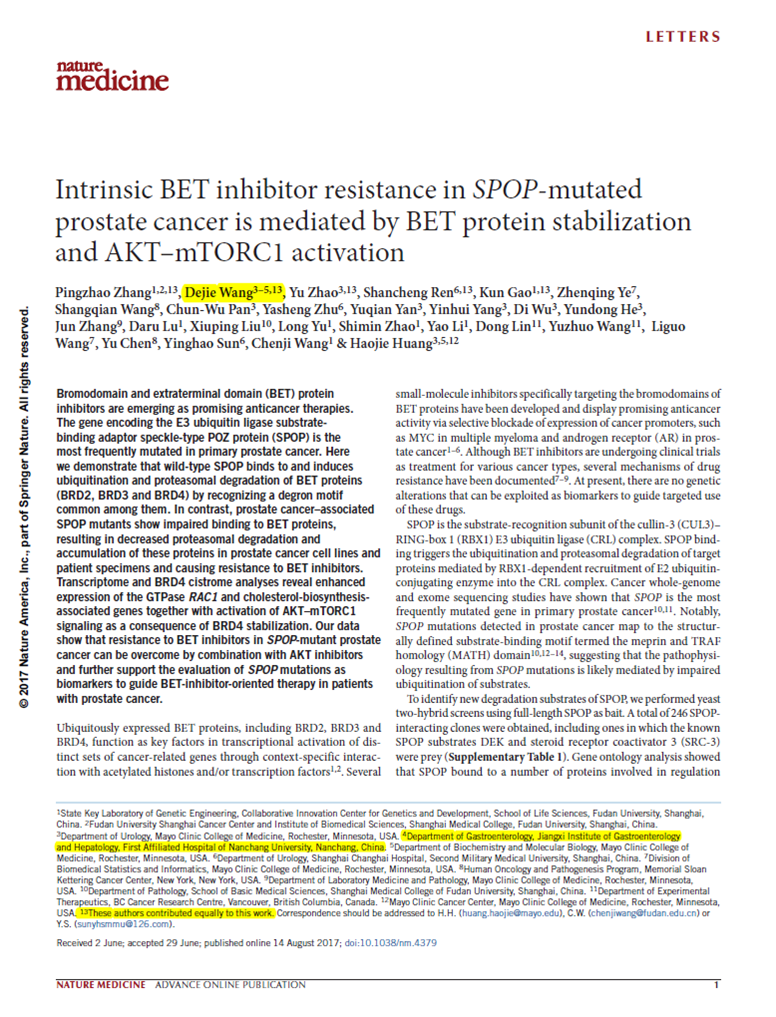Recently, the research achievement participated and completed by Doctor Dejie Wang from the First Affiliated Hospital of Nanchang University was published on international top-grade biomedical journal, Nature Medicine (impact factor 29.886), and the thesis title is Intrinsic BET inhibitor resistance in SPOP-mutated prostate cancer is mediated by BET protein stabilization and AKT-mTORC1 activation. Doctor Wang is one of the joint first authors of the thesis (ranking in the second place), and the First Affiliated Hospital of Nanchang University is one of the completing units. This is the first time that medical organization of our province publishes thesis on Nature Medicine as one of the undersigned units.

BET protein is the kind to facilitate tumor growth, and blocking its function plays a critically strong inhibiting effect in the growth of various tumor cells, which is an anti-tumor therapeutic target with favorable application prospect. The inhibitor related to BET protein has entered clinical test, but it is found that some tumors are drug resistant. SPOP is ubiquitin ligase molecule degraded by mediated protein, and is able to control the biological action intensity and time of protein. If SPOP gene is mutated, the effect of the degraded target protein will be impaired, which will make the tumor grow continuously. The above research participated and completed by Doctor Wang focuses on the molecular mechanism of SPOP-mutated prostate cancer occurrence and development as well as the strategy for targeted therapy, firstly finding that BET protein is the important functional substrate of SPOP protein, SPOP gene mutation makes the BET protein of prostate cancer cell unable to be degraded in time, thus accumulating in the tumor tissue, then facilitates cholesterol synthesis of relevant metabolic enzymes and small GTP enzyme Rac1 expression, thus activating AKT-mTORC1 signal channel, leading to malignant proliferation of tumor cells and naturally resistant to BET inhibitor; however, joint use of AKT inhibitor is able to well conquer the drug resistance to BET inhibitor, and inhibit tumor growth.Prostate cancer is one of the tumors most common among elderly men. SPOP gene mutation is the most common gene mutation of prostate cancer, however, previously, we knew little about the molecular mechanism of this kind of prostate cancer occurrence and development as well as the strategy for targeted therapy, the research findings provide a new thought for the precise treatment of SPOP-mutated prostate cancer, which is of important clinical significance.




